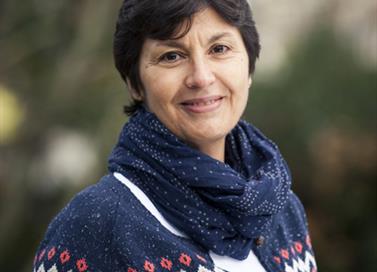Manchester by the Sea
08 July, 2017

Introduction
Manchester by the Sea is written and directed by Kenneth Lonergan. It was released in the UK in 2016 and has since won 115 awards.
Awards include two Academy Awards in 2017 for best performance by an actor in a leading role (Casey Affleck, who is outstanding as Lee Chandler) and best original screenplay; a Golden Globe in 2017 for best performance by an actor and two BAFTAs in 2017 for best leading actor and best screenplay to name only a few of them.
The film provides a harrowing but compelling account of a family’s tragedy over many years and it explores the tensions that can exist between individual need and the expectation that family ties may bring.
The Film
The story centre's on Lee Chandler, a troubled, socially isolated, man who is working in Boston as a janitor when the film opens. He is unexpectedly summoned back to his hometown of Manchester-by-the-Sea when his brother Joe dies suddenly. Lee finds himself staying in his brother’s home and being responsible for his brother’s son Patrick, who is 16 and still at school. Some of these scenes provide the lighter interludes to the film and also contrast Patrick’s less complicated experience of grief with that of his uncle.
The family’s back-story is fleshed out using flashbacks throughout the film. These show glimpses of the playful relationship that Lee had with his young nephew some years before as well as showing how his brother Joe had been a strong and supportive presence for Lee through the toughest of times that led to the breakdown of Lee’s marriage. In these scenes, we learn that Joe too was divorced from his wife and that she had a serious problem with alcohol.
I have chosen not to give further details of the tragic events suffered by Lee, as the build up to their revelation is intrinsic to the emotional power of the film, except to state that he was only able to cope with them by moving away alone to live and work in Boston.
As the story of his earlier family life continues, the account of his struggle to care for Patrick unfolds in parallel and Lee embraces the parenting as best he can. Although he appears to make some progress in his role as a carer, Lee cannot seem to overcome a fundamental resistance within himself that prevents him from considering the possibility of resettling in Manchester-by-the-Sea, the location of his past traumas. However, despite this drive to flee, Lee’s internal conflict about the choice he must eventually make concerning Patrick is almost palpable as the film reaches its conclusion.
Relevance to the Field of Mental Health
Manchester by the Sea provides a powerful portrait of grief, but additionally adds the complication of both recent and past losses suffered by the main protagonist, Lee. This makes the film especially useful for mental health professionals wanting to teach or learn about prolonged grief disorder (as defined in ICD-10) or persistent complex bereavement disorder (as defined in DSM-5).
In May 2017, the BMJ published an infographic on the subject of abnormal grief in the Practice Pointer section of the journal, which accompanied the article entitled Disturbed grief: prolonged grief disorder and persistent complex bereavement disorder by Paul A Boelen & Geert E Smid (BMJ 2017; 357 doi: https://doi.org/10.1136/bmj.j2016). This would be a very valuable resource to use alongside a viewing of the film when thinking about Lee’s presentation. Also available on the linked webpage is a podcast about helping patients with complex grief, featuring an interview with the authors of the article.
Spending time immersed in this film will undoubtedly provide an empathic experience of the numbness, hopelessness, rage and despair that accompany the main protagonist as he struggles to find a way through the tragic losses he has suffered whilst at the same time trying to deal with the expectations placed upon him by his dead brother. This makes the film immensely valuable to any health professional that might encounter patients suffering with abnormal grief in the course of their work and I cannot recommend it more highly.
More information about Manchester by the Sea can be found at IMDB, as can a short trailer.
Minds on Film is written by Consultant Psychiatrist, Dr Joyce Almeida


